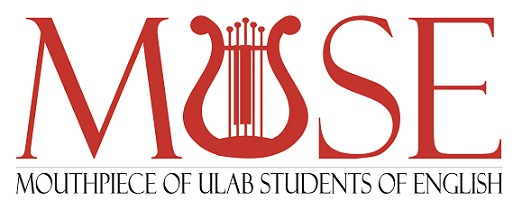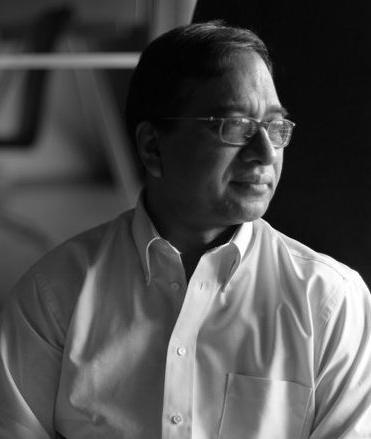A beloved Professor, a guide, and the best of mentors, Dr. Fakrul Alam is interviewed by two DEH students, Navid Anjum Hasan and Siham Sarawat:
- What inspired you to have your major in English as a subject? And why choose literature?
– I chose English because I was persuaded by an uncle that without good math skills I shouldn’t be taking Economics. In other words, Economics was my first choice and English, you could say, a default option! But I used to read a lot and have no stomach for language studies and so choosing literature was inevitable.
- We want to know how your journey of literature has been till now. Which literary era or genre in particular interests you the most, and why is that so?
-It is an endless journey where new vistas keep opening. The more I journey, the newer areas come into view. My first published papers were on 18th century English literature and Saul Bellow; I went to Canada thinking I would work on him or D. H. Lawrence but ended up with an M. A. dissertation on Melville and a PH. D. dissertation on Defoe. That is to say, I specialized at first in the American Renaissance and then in the Eighteenth-Century Novel. But then I read Edward Said and started to read classical English literature texts postcolonially. This soon took me to South Asian Writing in English and the writers of the South Asian diaspora. Next, I started translating Jibanananda Das and then Rabindranath, Bangabandhu’s unfinished works, and Mir Mosharraf Hossain. And now I want to concentrate on translating Rabindranath’s songs and writing more and more about him critically, and on Cultural Translation and Translation Studies. But I also am hoping to bring out a sequel to my postcolonial book of essays Imperial Entanglements that includes many essays on the politics of English education in our region. In other words, the magic carpet of literature keeps taking me to wonderful writers and new areas of literary language all the time!
- Since the core topic for our Summer-2018 issue of Muse is youth and its endless potentials, can you tell us how you approached a literary text when you started out as young, and how it changed as you matured with experience?
-When I was young, reading for pleasure was the only thing that mattered. I used to devour one book after another. Then I began reading books critically and developed some expertise as a close reader. Now I have learned to deconstruct books and look at their deep structure. Unfortunately, though, I am now deprived of the sheer joy of reading desultorily, which was what I would do when young!
- To what extent do you think Bengali literature is being exposed to the outside world? Is the youth contribution substantial?
-I would say that Bengali literature is underexposed to the outside world. We certainly need more competent translations. As far as I can tell, the youth contribution is anything but substantial. There are good signs, for as the editor of Six Seasons Review, I am always getting impressed by creative writing in English by our young people, but much more, I am sure, can be done by them.
- What role do you think English literature can play (along with Bangla, of course) in the life of the Bangladeshi youth, as far as ethical values or cultural tolerance is concerned?
-English literature cannot and will not play any role as long as students are not exposed to its classics, either incompetent translations, or through simplified adaptations such as Charles and Mary Lamb’s Tales from Shakespeare. However, if exposed thus, they will surely learn about life and about negotiating its pitfalls and embracing the ideas presented in them.
- What do you think an aspiring young critic should be focusing on first? How is the process different from that of a fiction writer? Or, is it similar in some ways?
-The aspiring young critic should use a model, presumably from the best critics on view. I learned a lot from reading the Times Literary Supplement reviews, Guardian features, and New Yorker prose without even thinking I was doing work or choosing models! Now I try to learn from the prose in The Economist. In academic criticism, I read a lot of Scrutiny essays and later Said, Frank Kermode and others no doubt influenced me. The process is of course quite different from a fiction writer’s approach, who may choose to model himself or herself on others, but whose work depends, so to speak on the primary imagination, whereas the critic has to take off from other people’s works and does not initiate anything much in that sense.
- In terms of translation, do you think university students here in Bangladesh have taken it seriously as another effective form of literary expression? Your thoughts, please.
-I think that there are signs that university students are opting for translation courses, where such courses are offered. However, I don’t think they are opting to do translation in large numbers, for you really need proficiency in two languages and then critical sense, and that takes time.
- Any suggestions for a young Bangladeshi translator in order to evolve and flourish along with other rising translators from the Subcontinent?
-Yes, read a lot, choose texts that will translate well from one culture to another, have good dictionaries, online ones or in hard copy handy, and be ready for a lot of hard work. Whether they are from the subcontinent or not, translators have to train themselves for the task and be prepared for the journey through cultures and languages!
-Thank you, so much, sir, for your valuable time!
-Thank you!

